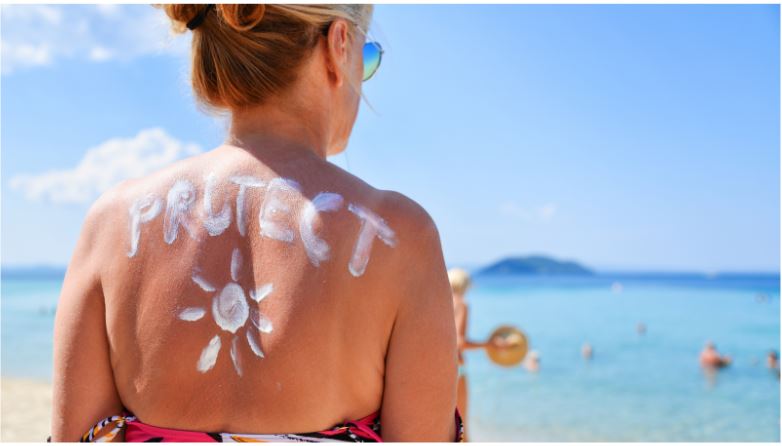Skin cancer is the most common cancer diagnosis. The good news is that it is also the most preventable. Damage from the sun’s ultraviolet radiation (UV rays) is the cause of most skin cancer. UV rays are not just dangerous; they are sneaky. They can penetrate clouds and glass and reflect off water, sand, and snow. Sun damage accumulates over time, so taking a comprehensive approach to defending your skin against skin cancer is crucial. There are a couple of simple steps you can take to protect yourself and your family against skin cancer.
Stay in the Shade
Mid-day is the most crucial time to avoid the sun. The sun’s rays are strongest between 10:00 a.m. and 2:00 p.m. A good rule of thumb is that you should seek shade if your shadow is shorter than you are.
Dress for the Sun
There are clothing options available that have an ultraviolet protection factor (UPF) label. In any case, sporting lightweight and long-sleeved shirts and pants will help protect you from the sun. In addition, wear a hat with a wide brim and sunglasses that wrap around and offer UV protection.
Lather on the Sunscreen
Wear sunscreen with a sun protection factor (SPF) of 30 or higher containing UVA and UVB protection, even on cloudy days. Broad-spectrum sunscreen protects you from both UVA and UVB rays. If you are at the beach or a pool, make sure to use water-resistant sunscreen. Most adults need about one ounce — or enough to fill a shot glass — to fully cover their entire body. When outdoors, or after swimming or sweating, reapply sunscreen every two hours. Use extra caution near water, snow, and sand. These elements reflect the rays of the sun, which can increase your chance of sunburn.
Skip the Tanning Bed
Ultraviolet light from tanning beds can cause skin cancer and premature aging. Consider using a self-tanning product if you want to give your skin a bronzed look without hopping in the tanning bed. Be sure to continue to use sunscreen with your self-tanning products.
Know your Skin
Examine your skin from head to toe once a month to detect skin cancer early when it is most treatable. If you notice new or suspicious spots on your skin or anything changing, itching, or bleeding, you should contact a professional. Additionally, see a board-certified dermatologist once a year for a professional skin exam.
At Blue Ocean Dermatology, we have the training, experience, and expertise necessary to meet all your skincare needs. Whether you need relief from a medical condition or are considering cosmetic dermatology, we are here for you. In rare cases where additional expertise may be necessary, you’ll also be able to take advantage of your providers’ access to a vast network of nationally-recognized dermatologists to provide you with the specialized care you deserve. Find the location that suits you best, and give us a call to schedule an appointment today!
Sources:
https://blueoceandermatology.com/
https://www.aad.org/public/diseases/skin-cancer/prevent/how
https://www.preventcancer.org/education/preventable-cancers/skin-cancer/
https://www.skincancer.org/skin-cancer-prevention/

